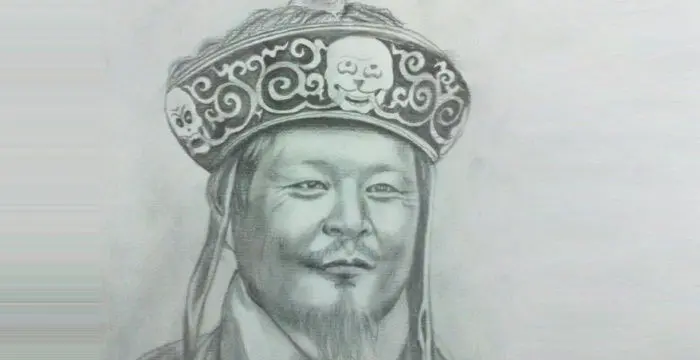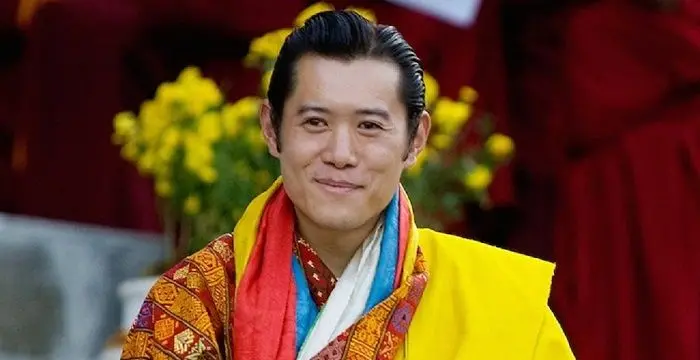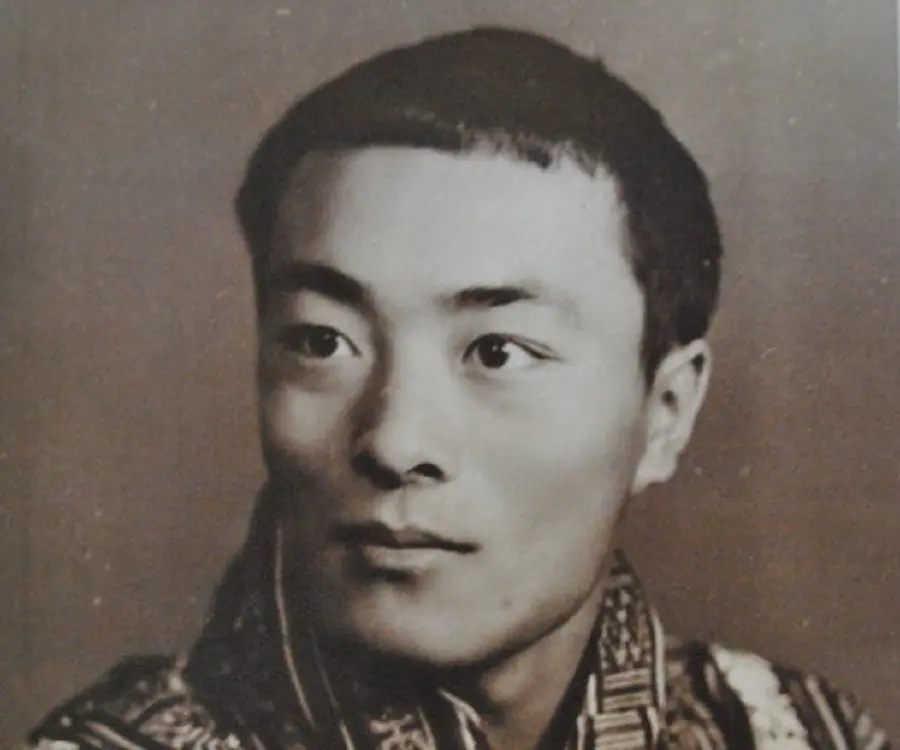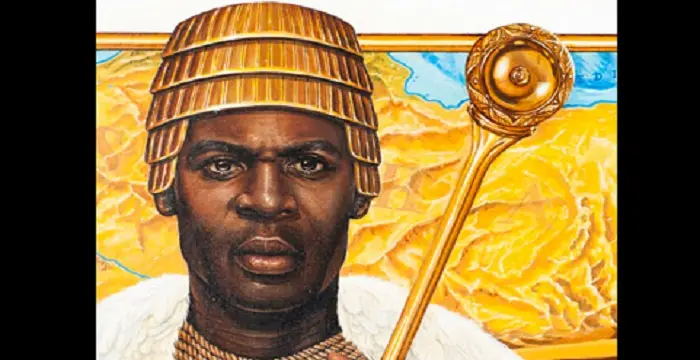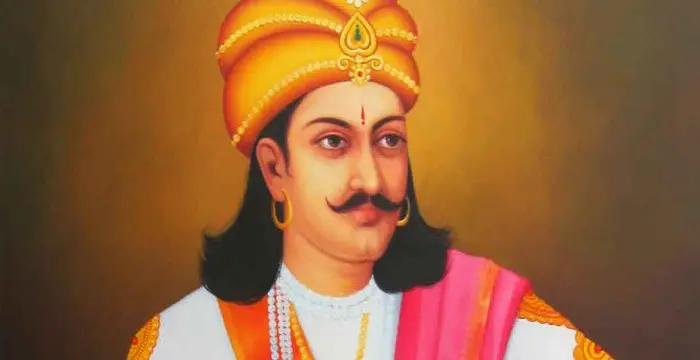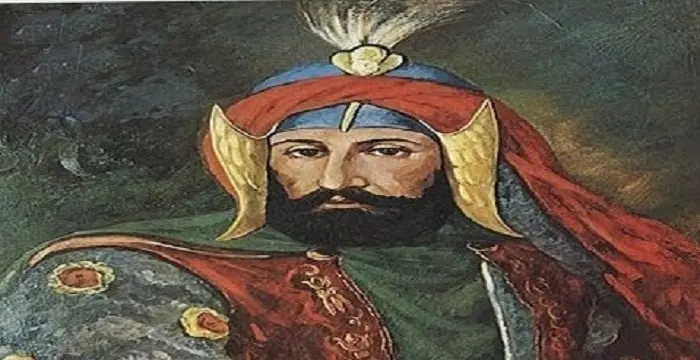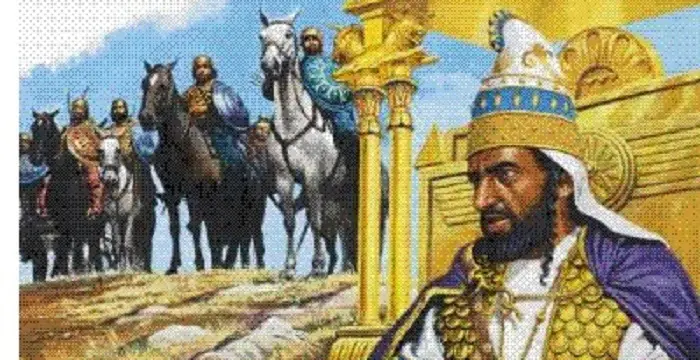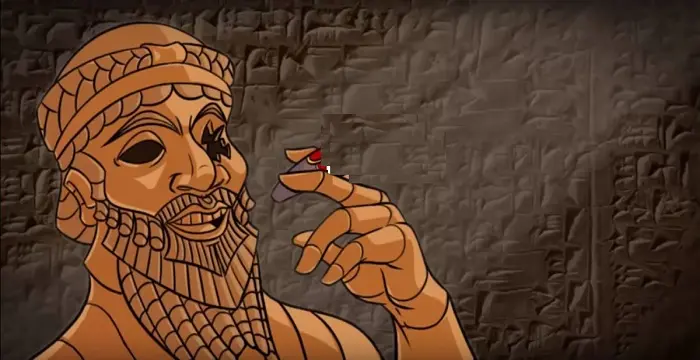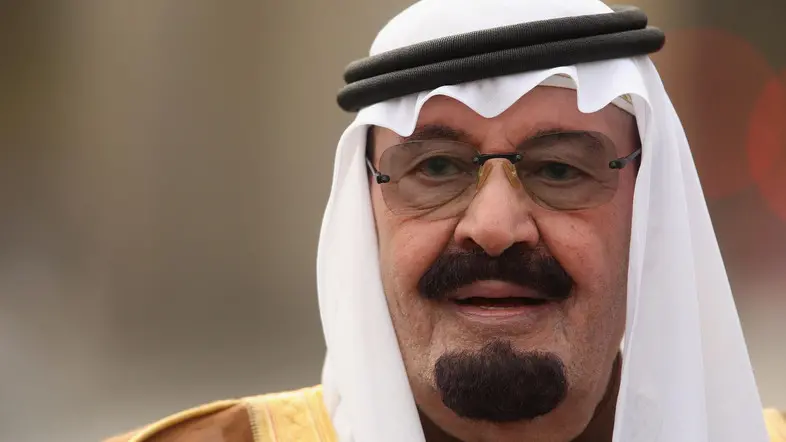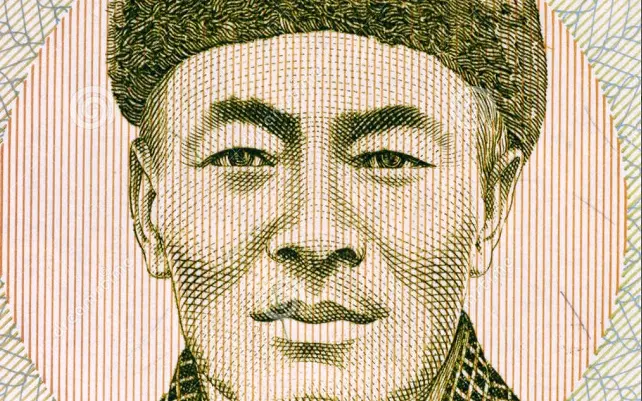
Jigme Dorji Wangchuck - Kings, Birthday and Facts
Jigme Dorji Wangchuck's Personal Details
Jigme Dorji Wangchuck was the Third Druk Gyalpo (King) of Bhutan
| Information | Detail |
|---|---|
| Birthday | May 2, 1929 |
| Died on | July 21, 1972 |
| Nationality | Bhutanese |
| Famous | Historical Personalities, Emperors & Kings, Bhutanese Emperors, Emperors, Kings, Third King of Bhutan |
| Childrens | Jigme Singye Wangchuck |
| Birth Place | Trongsa |
| Religion | Tibetan Buddhism |
| Gender | Male |
| Father | Jigme Wangchuck |
| Sun Sign | Taurus |
| Born in | Trongsa |
| Famous as | Third King of Bhutan |
| Died at Age | 43 |
// Famous Bhutanese Emperors
Jigme Khesar Namgyel Wangchuck
Jigme Khesar Namgyel Wangchuck is the fifth and present ‘Druk Gyalpo’ or the ‘Dragon King’ of the Kingdom of Bhutan since December 9, 2006. This biography profiles his childhood, life, reign, achievements and timeline.
Jigme Dorji Wangchuck's photo
Who is Jigme Dorji Wangchuck?
Jigme Dorji Wangchuck was the Third Druk Gyalpo (King) of Bhutan. He was someone who is credited for ushering in a new era in modern Bhutan and is often regarded as the father of modern Bhutan for the progressive changes that he brought about in the country during his reign as the king. He was educated privately, first in the palace and then in Kalimpong, India before he was sent to England in order to finish a well-rounded education as befitting a royal. Upon his return to the country, he served in some capacities in the government before being appointed as the king of the country following his father’s death and throughout his reign as the king that last two decades, he brought in changes that would go on to change the country forever. He established a new constitution, founded the Royal Bhutan Army, established courts, installed judges and did away with serfdoms and slavery. He was also a crafty diplomat who maintained good relationships with his neighbours and helped Bhutan secure a place in the United Nations.
// Famous Emperors
Sundiata Keita
Sundiata Keita was the founder of the Mali Empire in West Africa. This biography profiles his childhood, early life, struggles, founding of empire, rule, administration, achievements and also gives some fun facts.
Ashoka
Ashoka was the third emperor of the Mauryan Dynasty and ruled almost the entire Indian subcontinent. This biography profiles his childhood, life, reign, achievements and timeline
Murad IV
Murad IV was one of the mighty Sultans in the history of the Ottoman Empire. This biography profiles his childhood, family, accession, rule, administration and timeline.
Childhood & Early Life
Jigme Dorji Wangchuck was born to H.H. Maharaja Sri Sir Jigme Wangchuck and his first wife H.M. Puntsho Choden on 2 May 1929, in the Thruepang Palace in Trongsa, Bhutan. His father was the 14th Tongsa Penlop.
He was educated at the Royal Palace and then he went for private education in the city of Kalipmong in India. Subsequently, he went to England to complete his education.
After having travelled the world and gone to several places in Europe to learn more about the ways to develop a modern country, he returned to Bhutan and in 1943, he was made the Tongsa Dronyer. Three years later, he was recognised as the heir apparent to his father.
Career
Following the death of the then Paro Penlop named Tshering Penjor, Jigme Dorji Wangchuck was appointed as the Paro Penlop in 1950. It was his first official appointment. The word Penlop signifies the post of a governor of a particular geographical area and he served as the governor of the town of Paro for two years.
His father died on 30 March 1952 and on the 27 October 1952, he was crowned as the new king. His reign ushered in a new era in Bhutan and one of his first tasks was that of establishing the National Assembly which was unicameral in nature. He established the National Assembly a year after becoming the king.
In 1961, he established an economic planning initiative that would plan the course of the economy of Bhutan over a period of five years and two years later he helped in establishing the Royal Advisory Council or Lodoe Tshogde as well as a new constitution. In the same year, he also established the Royal Bhutan Army. He assumed the title of His Majesty the Druk Gyalpo and became the commander in chief of the army.
Jigme Dorji Wangchuck also did a lot for the education sector in Bhutan during his reign. In 1967, he helped in establishing the Simtokha Rigzhung Lobdra that later came to be known as the Institute of Language and Cultural Studies. It became a place for traditional Bhutanese education. He also helped in establishing public schools.
Having already established the Thrimzhung Chenmo or the Supreme Law in Bhutan, nine years earlier, he decided to establish a high court in the country in 1968. In addition to that, judges were appointed in different districts of the country as well. It was under his reign that the judiciary was reorganised and slavery as well as serfdom were made illegal.
He worked tirelessly in his quest to make sure that Bhutan had good relationships with its neighbours and to ultimately become a member of the United Nations. He forged excellent relationships with neighbours India and also recognised the newly created nation Bangladesh. In 1971, Bhutan became the member of the United Nations.
Major Works
Jigme Dorji Wangchuck was without doubt one of the most influential monarchs in the history of Bhutan and is often regarded as the father of modern Bhutan. Among his many achievements, his most impressive was that of making sure that Bhutan became a member of the United Nations and made the country a part of the global diplomatic circle.
Awards & Achievements
He was awarded the Padma Vibhushan, India’s second highest civilian award, in 1954.
Personal Life & Legacy
He married Ashi Kesang Choden Wangchuck, daughter of Gongzim (Lord Chamberlain) Sonam Tobgay, in 1951. The couple had two daughters and a son.
He died on 21 July 1972, in Nairobi, Kenya at the age of 43.
Jigme Dorji Wangchuck biography timelines
- // 2nd May 1929Jigme Dorji Wangchuck was born to H.H. Maharaja Sri Sir Jigme Wangchuck and his first wife H.M. Puntsho Choden on 2 May 1929, in the Thruepang Palace in Trongsa, Bhutan. His father was the 14th Tongsa Penlop.
- // 1943After having travelled the world and gone to several places in Europe to learn more about the ways to develop a modern country, he returned to Bhutan and in 1943, he was made the Tongsa Dronyer. Three years later, he was recognised as the heir apparent to his father.
- // 1950Following the death of the then Paro Penlop named Tshering Penjor, Jigme Dorji Wangchuck was appointed as the Paro Penlop in 1950. It was his first official appointment. The word Penlop signifies the post of a governor of a particular geographical area and he served as the governor of the town of Paro for two years.
- // 1951He married Ashi Kesang Choden Wangchuck, daughter of Gongzim (Lord Chamberlain) Sonam Tobgay, in 1951. The couple had two daughters and a son.
- // 27th Oct 1952His father died on 30 March 1952 and on the 27 October 1952, he was crowned as the new king. His reign ushered in a new era in Bhutan and one of his first tasks was that of establishing the National Assembly which was unicameral in nature. He established the National Assembly a year after becoming the king.
- // 1954He was awarded the Padma Vibhushan, India’s second highest civilian award, in 1954.
- // 1961In 1961, he established an economic planning initiative that would plan the course of the economy of Bhutan over a period of five years and two years later he helped in establishing the Royal Advisory Council or Lodoe Tshogde as well as a new constitution. In the same year, he also established the Royal Bhutan Army. He assumed the title of His Majesty the Druk Gyalpo and became the commander in chief of the army.
- // 1967Jigme Dorji Wangchuck also did a lot for the education sector in Bhutan during his reign. In 1967, he helped in establishing the Simtokha Rigzhung Lobdra that later came to be known as the Institute of Language and Cultural Studies. It became a place for traditional Bhutanese education. He also helped in establishing public schools.
- // 1968Having already established the Thrimzhung Chenmo or the Supreme Law in Bhutan, nine years earlier, he decided to establish a high court in the country in 1968. In addition to that, judges were appointed in different districts of the country as well. It was under his reign that the judiciary was reorganised and slavery as well as serfdom were made illegal.
- // 1971He worked tirelessly in his quest to make sure that Bhutan had good relationships with its neighbours and to ultimately become a member of the United Nations. He forged excellent relationships with neighbours India and also recognised the newly created nation Bangladesh. In 1971, Bhutan became the member of the United Nations.
- // 21st Jul 1972He died on 21 July 1972, in Nairobi, Kenya at the age of 43.
// Famous Kings
Sundiata Keita
Sundiata Keita was the founder of the Mali Empire in West Africa. This biography profiles his childhood, early life, struggles, founding of empire, rule, administration, achievements and also gives some fun facts.
Ashoka
Ashoka was the third emperor of the Mauryan Dynasty and ruled almost the entire Indian subcontinent. This biography profiles his childhood, life, reign, achievements and timeline
Murad IV
Murad IV was one of the mighty Sultans in the history of the Ottoman Empire. This biography profiles his childhood, family, accession, rule, administration and timeline.
Xerxes I
Xerxes I (Xerxes the Great) was the fourth and the most famous king of the Archaemenid dynasty of Persia. This biography profiles his childhood, family, personal life, life history, achievements, campaigns, administration, death and other facts.
Sargon of Akkad
Sargon of Akkad, also called ‘Sargon the Great’, ‘Sarru-Kan’ and ‘Shar-Gani-Sharri’, was the founder and first king of the Akkadian Empire. This biography profiles his childhood, life, rule, administration, timeline, and gives some fun facts.
Abdullah of Saudi Arabia
Abdullah bin Abdulaziz Al Saud was the King of Saudi Arabia from 2005 to 2015 and the third wealthiest head of state in the world. Find more facts about his life, childhood and timeline.
Jigme Dorji Wangchuck's FAQ
What is Jigme Dorji Wangchuck birthday?
Jigme Dorji Wangchuck was born at 1929-05-02
When was Jigme Dorji Wangchuck died?
Jigme Dorji Wangchuck was died at 1972-07-21
Where was Jigme Dorji Wangchuck died?
Jigme Dorji Wangchuck was died in Nairobi
Which age was Jigme Dorji Wangchuck died?
Jigme Dorji Wangchuck was died at age 43
Where is Jigme Dorji Wangchuck's birth place?
Jigme Dorji Wangchuck was born in Trongsa
What is Jigme Dorji Wangchuck nationalities?
Jigme Dorji Wangchuck's nationalities is Bhutanese
Who is Jigme Dorji Wangchuck childrens?
Jigme Dorji Wangchuck's childrens is Jigme Singye Wangchuck
What is Jigme Dorji Wangchuck's religion?
Jigme Dorji Wangchuck's religion is Tibetan Buddhism
Who is Jigme Dorji Wangchuck's father?
Jigme Dorji Wangchuck's father is Jigme Wangchuck
What is Jigme Dorji Wangchuck's sun sign?
Jigme Dorji Wangchuck is Taurus
How famous is Jigme Dorji Wangchuck?
Jigme Dorji Wangchuck is famouse as Third King of Bhutan
